6 Foods That Can Help Save Your Skin From Sun Damage

Just as an unhealthy diet can have a negative effect on your skin and health, a healthy diet high in antioxidant-rich foods can help protect your body, even from the sun. Since antioxidants help reduce inflammation and free radicals, loading your diet with them will go a long way against sunburn and skin damage as a result of UV rays. We connected with Dr. Christopher Calapai, D.O., a New York City Osteopathic Physician board certified in family and anti-aging medicine for his list of foods that help prevent sun damage.
To be clear, Dr. Calapai is not saying you should completely replace using daily use of sunscreen with food, but what you eat can offer additional protection for your skin. So if you’re looking for some ingestible sun protection, add these six sun-friendly foods to your next shopping list.
- Berries & stone fruits
Strawberries, blueberries and cherries contain high levels of vitamin C, which can reduce free radical damage caused by exposure to UV radiation. Vitamin C also stimulates collagen production, important for skin’s youthful appearance. As a bonus, cherries contain melatonin, which protects skin from UV radiation and repairs sunburn damage.
- Leafy greens
If it’s green and it’s got leaves, chances are it’s good for sun protection. According to one study, spinach, kale and swiss chard can reduce the risk of squamous cell skin cancer by 50%. Broccoli is also a good choice: it’s full of sulphoraphane, an antioxidant that helps your cells protect themselves against UV radiation.
Fresh herbs like parsley, basil, sage and rosemary are also packed with free radical-fighting, skin-protecting antioxidants. Not sure where to start? Check out our guide to cruciferous vegetables.
- Red & orange produce
The antioxidant lycopene has been shown to protect the skin against sunburn and is at least twice as effective an antioxidant as betacarotene when it comes to blocking UV light. It also helps rid the body of free radicals. Chow down on tomatoes, papaya, guava, red bell peppers and pink grapefruit. Watermelon is an especially good choice: it contains 40% more lycopene than tomatoes.
- Micro-algae
Spirulna has been dubbed “the next great superfood,” and for good reason. This micro-algea, along with chlorella, contains the antioxidant astaxanthin, which has been shown to protect the skin and eyes against UV radiation. It also fights free radicals and inflammation to prevent sun damage by preventing UV-induced cell damage.
If micro-algea isn’t exactly your cup of tea, you can find this powerful antioxidant in shrimp and salmon.
- Chocolate
As long as it’s dark chocolate you’re eating, you’ll be ingesting plenty of flavanoids, which can improve your skin’s ability protect against sunburns and other UV-induced issues.
Research found that people who ate about one ounce of high-percentage dark chocolate every day for three months could withstand twice the amount of UVB rays before their skin started to turn red, compared to those who didn’t.
- Green & black tea
The myriad health benefits of tea are well known, but it’s nice to know that the cups you’re drinking can also help protect against sun damage. Green and black teas are packed with polyphenols that can help stop cancer development by limiting the blood supply to the cancerous area. Green tea can even help prevent non-melanoma skin cancer by enhancing DNA repair.
|
What Is The Mental Impact Of Being Fat Shamed?
New Jersey / New York Based Dr Frieda Birnbaum (http://www.doctorfrieda.com) a Research Psychologist, Psychoanalyst and Author is available for interviews in Studio, via Satellite or Skype.
Dr. Frieda Birnbaum Says:
- When pointing out to someone that you perceive them as being overweight and you do it in a condescending matter, it will likely have a negative effect on that person. Subconsciously, weight gain is can be associated with shielding & protection so when a person fat shames another, they may actually provoke that person into gaining more weight.
- According to The National Institute of Diabetes and Digestive and Kidney Diseases, more than two-thirds (68.8 percent) of US adults are considered to be overweight or obese. If people want to fat shame someone, they should consider doing it to the person in the mirror before anyone else.
- People react to criticism differently and a person who is fat shamed one too many times might actually decide to use that energy as a catalyst to transform their bodies. Often when a person makes the decision to reduce their weight, it's because they are no longer happy with their current body image. A person's decision to lose weight can also come from self love and wanting to attain optimal health.
- If someone in your life is overweight and you wish to convey your concern for them, always do it in a positive manner with lots of love and not in a negative tone. Your love and encourgement can have a positive impact that individual's mental health in the short & long term.
About Dr. Frieda Birnbaum
NY Metropolitan Based - Dr Frieda Birnbaum is a Research Psychologist, Psychoanalyst and Author of " Life Begins at 60: A New View on Motherhood, Marriage, and Reinventing Ourselves." She's an expert on depression, women's issues, and attaining happiness.
Dr. Frieda on WPIX 11 News
|
NATIONAL NUTRITION MONTH: TIPS TO HELP LATINO FAMILIES IMPROVE HEALTH
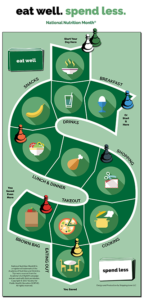
Society for Public Health Education (SOPHE) encourages everyone to try new and healthy foods
Although March is officially National Nutrition Month, anytime is a good time to eat more nutritiously, points out the Society for Public Health Education (SOPHE). SOPHE offers 12 tips to help Latino-Americans eat more nutritiously.
“National Nutrition Month is an opportunity to learn more about nutrition and try new and healthy foods. Eating healthy foods can help weight management and lower risk for many chronic diseases like heart disease, type 2 diabetes, and cancer, which especially affect many Latino communities,” said Elaine Auld, CEO of SOPHE. She offered the following tips:
Go fresh. Choose fresh seafood, lean poultry, and beans as your protein source. If using ground meats, choose 93 percent lean ground turkey or ground sirloin beef.
Make fresh salsa or black bean dip. Store-bought salsa is often loaded with sodium. If you plan to have more than a tablespoon or two, fresh salsa is a much better option. Guacamole contains healthy fats, but is high in fat and calories.
Measure portions. It is easy to overeat on snacks. Measure one serving so you can save room for the main course.
Favor whole grains. Brown rice is a whole grain and has more nutrients than white rice. Use corn and whole wheat tortillas instead of those made with flour. Buy or bake whole grain breads and baked goods.
Use the plate method. Fill half of your plate with non-starchy vegetables. Fill one quarter of your plate with a lean protein. Then fill one quarter of your plate with a starchy food, such as beans or brown rice.
Use healthy cooking methods. Grill your chicken, fish, or vegetables. You can also try baking, steaming, or broiling. Small amounts of vegetable oil, olive oil, or cooking spray are better options.
Beans make a great protein source. Use dried beans when you can. They are lower in sodium than canned varieties. Always drain and rinse canned beans to remove excess sodium. If you are buying canned refried beans, buy fat-free varieties. Or make your own by blending whole black or pinto beans in a food processor with spices.
Go easy on the cheese. Cheese is high in saturated fat and in sodium. Queso fresco is a great choice if used in moderation. You can also try reduced-fat cheeses.
Substitute healthier options for sour cream. Non-fat Greek or plain yogurt and non-fat plain yogurt have a similar taste and texture to sour cream for much less calories and fat.
Cut your portion size when eating out. If you eat out, split the meal with someone else, eat half the meal and bring home leftovers, or order a kid-sized meal.
Snack on fruits and vegetables. Keep a bowl of fruit out on a table or counter to encourage healthy snacking. Pre-cut veggies and make “grab and go” packets.
Pack your lunch. Skip eating out and bring your lunch.
Substituting foods and even small dietary changes can lead to positive results, notes Auld. Researchers report that more than 40 percent of Latinos are obese.[1] Auld is working with SOPHE members and other partners to decrease those numbers.
“We want to help Latino communities, families and individuals overcome the barriers to good health,” Auld added. “We want to make healthy living easier where people live, learn, work, and play.”
The Society for Public Health Education is partnering in a three-year nationwide project called the National Implementation and Dissemination for Chronic Disease Prevention, funded by the Centers for Disease Control and Prevention. There are 97 projects in communities across the nation assisting people and communities in living healthier lives. Learn more at #Partnering4Health and www.partnering4health.org.
Some tips adapted from the National Diabetes Association.
Hey guys! If you have protein powder in your diet this week and are craving a sweet treat give this recipe a try!
Ps this recipe was sent out in my newsletter so if you aren't subscribed makes sure you do! www.trainitright.com either click the popup or scroll to the bottom.
Healthy Chocolate Lava Cake
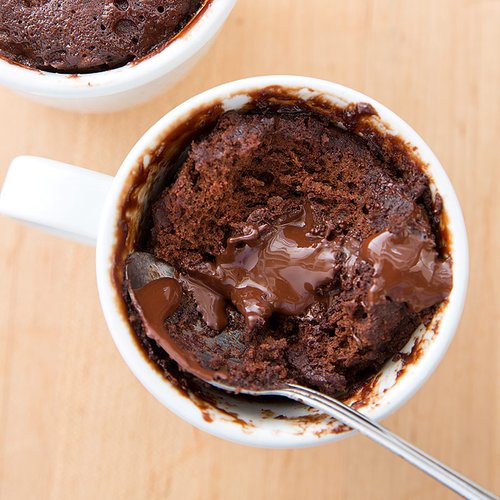
This recipe is for those of you who desperately are craving a sweet treat but know enough not to stray too far off of your diet. If you do IIFYM you can easily fit this into your macros.
1 Scoop Protein Of Choice
1 tsp cocoa
1 tsp Baking Powder
1 tbsp PB2 (peanut butter without the fat)
1 Packet of stevia or liquid stevia drops
Almond Milk/Cashew Milk (amount will vary depending on protein)
1. Mix all of the dry ingredients together into a bowl or mug.
2. Add Almond milk slowly and stir until brownie batter is achieved.
2. Microwave 1-2 minutes until there is only a small centre of "goo" in the middle. Think lava cake. I suggest checking every 30s to see.
3. ENJOY! But beware it is addictive!
Five Ways To Spring Clean Your Health & Lose Weight - Interviews Available With Doctor
Dr. George's tips are:
1. Start exercising
An increase in activity of as little as 20 minutes 3 times a week can make a difference in your risk of heart disease, diabetes and obesity. You don't have to get fancy with a gym membership. Try taking the stairs at work instead of the elevator, or park further from the entrance when you go to the market or mall.
2. Eat Smaller portions
You may not want to give up your junk food or fried food, but try to limit your portions. Instead of buying a six pack of soda, buy a two liter bottle. You can better control the portions along with your intake of calories.
3. Drink more water
The average person should be drinking 1 ounce per kilogram of his/her weight in water per day. (1 lb = 2.2kg). Studies have shown that people eat more when they are dehydrated because the signals in the body can confuse hunger with thirst. If you are hungry, try drinking an 8-12 oz glass of water before you decide to eat that snack.
4. Avoid salt
The average American diet consists too much salt. Salt is found in everything from canned foods to frozen foods. Not only does salt make your body retain water, it also dulls your sense of taste when it comes to sugar. As a challenge, decrease the amount of salt you eat for about 1 week, then drink a non-diet soft drink. Not only will you lose about 3- 5 lbs of water weight, but you will see that the soda is incredibly sweet. In addition, try to use sea salt.
5. Avoid high fructose corn syrup
Studies have shown that most products in this country are made with high fructose corn syrup that is contaminated with mercury (a known neurotoxin). Instead try to choose foods made with cane sugar. When you drink soft drinks that are made with sugar you will be less likely to crave salt and be able to stop with one soda because there is no 'sugar high' that leads to the craving that makes you want to have more.
About Dr. Elaina George
Atlanta, GA Based - Dr Elaina George is a Board Certified Otolaryngologist. She graduated from Princeton University with a degree in Biology. She received her Masters degree in Medical Microbiology from Long Island University, and received her medical degree from Mount Sinai School of Medicine in New York. Dr George completed her residency at Manhattan, Eye Ear & Throat Hospital. She is on the advisory council of Project 21 black leadership network, an initiative of The National Center for Public Policy Research. Dr George hosts her own radio show, "Medicine On Call" and she is also a keynote speaker many organizations. As a solo practitioner in private practice who is also a small business owner, she has a unique perspective on the problems of health care delivery, the true costs of healthcare and viable solutions.
TV CLIP of Dr. Elaina George on Fox Business News
Health Coaches Pave the Way for a Brighter Future for Health Care
By Joshua Rosenthal
As policy makers continue to debate the future of healthcare in America, there is an often overlooked, yet important, part of our healthcare system. Think about the healthiest habits you have. Do you enjoy getting outside to walk on your lunch break, drink mostly water during the day, or cook healthy meals every night?
How did you develop these healthy habits?
Chances are, you developed these healthy tendencies over time, with guidance and support from friends, family, colleagues, coaches, and anyone else who encouraged you and held you accountable.
Getting and staying healthy isn’t rocket science. Most of us know we need to exercise more, eat whole foods, and manage our stress better. The challenge is in making those healthy habits stick. While we like to think we can do the right thing because the experts say we should, science tells a different story.
Ongoing research at the Department of Family and Community Medicine at the University of California and the Mayo Clinic have found that people are much more likely to adopt and maintain healthy habits when they work with a peer or coach as opposed to a doctor or another expert. (1) (2)
Health Coaches are perfectly poised to be that peer or coach for people looking for a partner to help them adopt and maintain healthier habits. Why? Health Coaches are trained in changing behaviors, holding people accountable and frequently have a lot in common with their clients. These similarities (like culture, language, experiences, and values) help to develop trust and a unique mentor/student bond that can bring about total life transformation and lasting change.
Health Coaches are the future of preventative health care; in fact, as one of the fastest-growing professions, there are now approximately 35,000 self-identified practitioners nationally and the Department of Labor projects a 21 percent increase for health and wellness professionals focused on preventative health - faster than all other occupations.
The bottom-line: In an age of rising health care costs and uncertainty, Health Coaches have the ability to reduce over all health care costs while employing thousands of Americans with well-paying jobs.
Medical professionals are crucial for helping those in need, but they don’t always have the time or resources to help people find and build healthy habits. There is a huge demand for a new kind of health advocate who can help fill a void in our current healthcare system.
According to David Thom, M.D., Ph.D. Research Director for the UCSF Department of Family & Community Medicine, “When patients are managed by their doctor, we often do so in four or five 15-minute visits a year, and in between those visits we have little to no contact with the patient. To think that is optimal is naïve. It’s amazing that we’ve gotten along so long without using Health Coaches, and we haven’t even realized all the benefits yet.” (3)
Within the current healthcare model, attempts to reduce lifestyle-related chronic disease and costs have proven to be financially unsustainable due to a system that rewards hospitalizations and invasive procedures. Thankfully, more employers, hospitals, and insurance companies understand that an investment in Health Coaches have real and lasting impacts on our collective wellness.
The Wall Street Journal recently reported that there is “a broader shift within the healthcare industry toward keeping people well instead of simply treating them when they’re sick.” And that, “although wellness coaching is a relatively new field, some recent research suggests that it does work.” (4)
Our nation’s health and wellness is not suffering because we don’t know what to do; it’s that we need allies and advocates in the form of Health Coaches to assist and hold us accountable along the way. The work of Health Coaches has been quietly improving the health and wellness of many for over 25 years. It is time to recognize their efforts and empower their growth; our nation’s health depends on it.
We also need the support of Congress to ensure that our community can continue to offer preventive health care options for millions of Americans. Allowing consumers the flexibility in using their Health Savings Accounts (HSA) for Health Coaches will incentivize wellness. The recent, bipartisan introduction of the Health and Wellness Coach Resolutions in the House of Representatives and the United States Senate is a signal that our policymakers support the important work of Health Coaches.(5) More importantly, it also illustrates that our policymakers from both parties clearly understand and agree with the new research and a growing movement embracing a holistic approach to wellness with food and lifestyle as the new prescription of choice and Health Coaches as the guides.
It is the mission of Health Coaches to play a crucial role in improving health and happiness, and through that process, create a ripple effect that transforms the world. It is imperative that our nation’s lawmakers continue to seek out opportunities to support the important benefits Health Coaches are providing citizens around the country and helping daily to ensure the health of the American public.
Rosenthal, MScEd. is the visionary founder and director of the Institute for Integrative Nutrition (IIN), which has trained over 100,000 students in 100 countries for over 25 years.
(1) Study: Making the Most of Health Coaches in Primary Care
(2) Study finds wellness coaching benefits last over time
(3) Health Coaches Help FPs Improve Chronic Disease Management
(4) Wall Street Journal, Trying to Break Unhealthy Habits? There’s a Coach for That
(5) U.S. House of Representatives – House Resolution 121.
|
|
###
About The Institute for Integrative Nutrition (IIN)
The Institute for Integrative Nutrition was founded in 1992 by Joshua Rosenthal. What started as a small classroom of passionate students in a live setting is now the world’s largest nutrition school and most well renowned Health Coach Training Program. Through an innovative, one-year online course built specifically for the adult learner, Integrative Nutrition’s holistic program teaches Health Coaching and business skills, personal development philosophy, and over 100 dietary theories with lectures by the world’s leading physicians, researchers, doctors, and nutrition experts. Integrative Nutrition is more than a school; they are a movement whose program is changing the landscape of health and wellness around the world, training over 60,000 students and graduates in 124 countries. |
The Rise & Shine Breakfast Bowl from Hopscotch
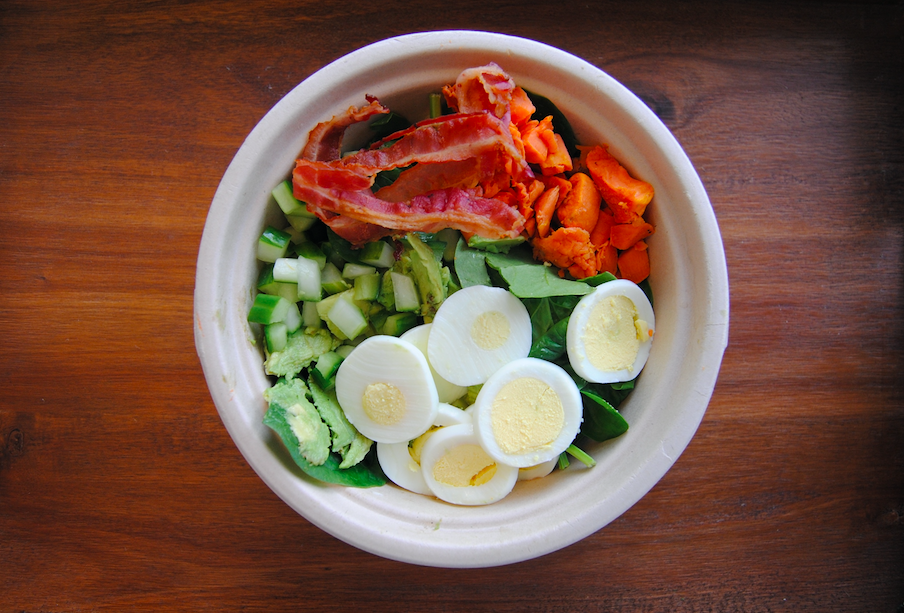
Breakfast, the most important meal of the day, should not only make you feel good but also give you that extra motivation to hop out of bed every morning. I never skip breakfast and my breakfast meals always include a good source of protein, vegetables and healthy fats. This is why I want to share with you this recipe: The Rise & Shine Breakfast Bowl from Hopscotch.
Hopscotch (a health-focused, locally-sourced, fast casual restaurant) has the perfect way to fill your readers bellies and start the day off on the right note.
The Rise & Shine breakfast bowl is a light but filling starter that uplifts tired, morning spirits with a mix of wheat berries, spinach, bacon, egg, sweet potato, avocado and cucumber, tossed in a maple balsamic vinaigrette.
If you would like a PDF of the recipe please so that you can make it yourself at home. Click here: Hopscotch Recipe- Rise & Shine
For more information about Hopscotch please visit their website.
Food on the Brain…
Top Brain Boosters to Add and Brain Drainers to Drop From Your Shopping List
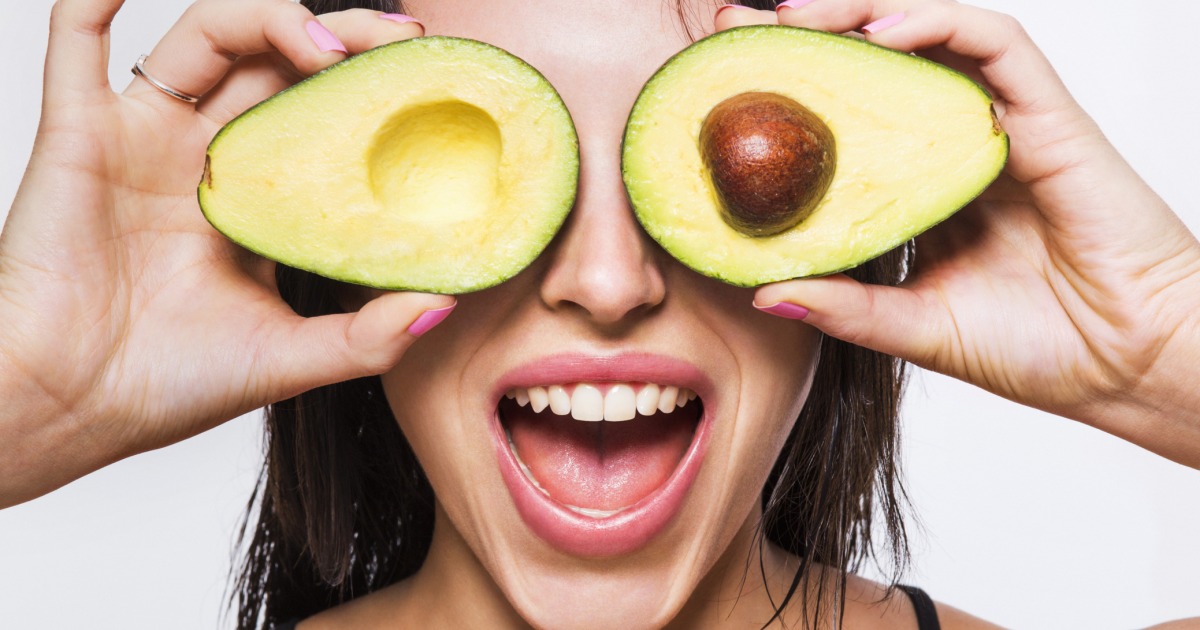
The foods you have in your pantry and fridge may be helping or hindering your brain. Dr. Christopher Calapai DO, a New York City Osteopathic Physician board certified in family and anti-aging medicine explains that the foods we choose have a lot to do with how sharp, attentive, alert, focused and happy we feel after they are consumed. Certain foods may taste great have additives in them that literally cloud our brains and leave us sluggish and dull headed. The opposite is also true. We can eat certain foods and feel a charge of mental energy and focus. We spoke to Dr. Calapai and got a quick list of foods that boost and drain the brain. Which ones will you add and remove from your shopping list?
Brain Boosting Foods to Add!
1 Nuts and seeds
Nuts and seeds are great sources of vitamin E. Higher levels of vitamin E correspond with less cognitive decline as you get older. Add an ounce a day of walnuts, hazelnuts, Brazil nuts, almonds, cashews, peanuts, sunflower seeds, sesame seeds, flax seed, and un-hydrogenated nut butters such as peanut butter, almond butter, and tahini. Raw or roasted doesn't matter, although if you're on a sodium-restricted diet, buy unsalted nuts. “Adding nuts to your diet can aid in decreasing levels of enzymes that lead to protein plaques from forming and dementia. Nuts can also reduce brain inflammation, keep blood pressure low, key for preventing stroke,” explains Dr. Calapai.
- Blueberries
“I eat these daily and encourage patients to add blueberries to as many things as possible. They’re great on their own, added to a shake, to oatmeal, or even to a salad,” says Dr. Calapai. Blueberries are tasty and sweet and loaded with antioxidants. They’re packed with vitamin C, K and fiber and pack high levels of gallic acid, making them especially good at protecting our brains from degeneration and stress. “Studies show that eating blueberries can boost focus and memory for up to 5 hours,” adds Dr. Calapai
- Broccoli
Broccoli is one of the best brain foods out there. Thanks to its high levels of vitamin K and choline which is a B vitamin know for aiding brain development keeps memory sharp and protects the brain from later decline with age. It’s also loaded with vitamin C. Just one cup provides you with 150 percent of your recommended daily intake. Its high-fiber levels makes you feel full quickly, too. “People hear broccoli and roll their eyes thinking it’s bland a boring. Think of broccoli as a canvas ready to be painted with spices and flavors, offers Dr. Calapai. Try stir frying with a bit of olive oil, red pepper flakes, salt, and pepper. Add in a spoonful of orange or lemon juice and it gets this nice sweetness to it.
- Fish
Salmon, mackerel, tuna, and other fish are rich in heart-healthy omega-3 fatty acids, including docosahexaenoic acid (DHA). DHA seems to be very important for the normal functioning of neurons in the brain. Eating more fish often means eating less red meat and other forms of protein that are high in artery-clogging saturated fats. “People who are lacking in Omega 3’s can experience mood swings and feeling edgy or negative. Omega 3’s have been know to be mood boosters in addition to enhancing focus and memory,” says Dr. Calapai.
- Avocado
This creamy treat is also a rich source of the antioxidant vitamin E. Research suggests that foods rich in vitamin E—including avocado, which is also high in the antioxidant powerhouse vitamin C—are associated with a lower risk of developing Alzheimer’s.
Brain Drainers to Drop!!
- Partially Hydrogenated Oils
There is zero reason to ever eat foods that list "partially hydrogenated oils" in their ingredients list. It's code for trans fats, which, in addition to upping your risk for obesity and damaging your heart health, can cause serious brain drain. “Diets high in trans fats increase beta-amyloid, peptide 'plaque' deposits in brain associated with Alzheimer's disease. One study published in Neurology found that people who consumed high levels of trans fats had lower cognitive abilities and smaller brains later in life,” says Dr. Calapai. Common culprits include fried foods, baked goods, and processed foods. So bake or grill chicken instead of frying it, go for sweet potatoes instead of French fries and avoid anything wrapped in plastic that sits on a shelf for months at a time.
- Added sugars
The average American eats 79 pounds of added sweeteners per year which can cause constant insulin spikes and inflammation resulting in both vascular and neuronal damage. One study published in Brain, Behavior and Immunity found that large amounts of sugar cause the hippocampus, the brain's memory control center, to become inflamed, meaning it can’t work at 100 percent. Meanwhile, one cross-cultural analysis found that high sugar intake is linked to depression. “Sugar is a big trap because when you eat something sweet there’s a high initially. It feels good at first taste but then once it starts to be processed in the body there’s a heaviness that follows, says Dr. Calapai.
- Saturated fat
A diet high in saturated fat can decrease the brain’s ability to fight the formation of Alzheimer's-linked brain plaque. An onslaught of saturated fat also hurts your brain in the short-term. Saturated fat impairs your brain's ability to learn and form new memories within as little as 10 minutes after chowing down. Processed meats such as bacon, pepperoni, pork sausage, or chorizo are examples of very tasty foods that are high in saturated fat. “Look we all like to indulge from time to time and that is fine, but when saturated fats are staples in your diet, then that’s going to take a toll,” advises Dr. Calapai.
About the Doctor:
Dr. Christopher Calapai, D.O. is an Osteopathic Physician board certified in family medicine, and anti-aging medicine. Proclaimed the "The Stem Cell Guru" by the New York Daily News, Dr. Calapai is a leader in the field of stem cell therapy in the U.S. His stem cell treatments have achieved remarkable results in clinical trials on patients with conditions as varied as Alzheimer's, arthritis, erectile dysfunction, frailty syndrome, heart, kidney and liver failure, lupus, MS and Parkinson's. He has worked with Mike Tyson, Mickey Rourke, Steven Seagal, and Gotham's, Donal Logue; and as a medical consultant for the New York Rangers. Connect with him via twitter @drcalapai or at www.drca
Super Slim: New Book Exposes Fool-Proof Blueprint to Losing Weight – Without Dieting or Exercise!
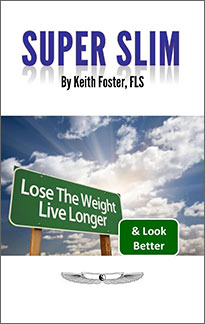
Keith Foster’s ‘SUPER SLIM: The Intelligent Person's Guide to a Slimmer, Healthier & Longer Life’ unravels weight gain, obesity and weight loss in a simple, highly-actionable way that has never been seen before. Taking readers right back to humanity’s beginnings, Foster explains fat’s evolutionary benefits, advancing to the present day’s obesity epidemic and how to fight it without fail. From sunlight’s “secret” benefits to weight loss, all the way to providing high-alkaline food lists, this bold new volume has the power to change the lives of millions.
The prevalence of obesity today makes it abundantly clear that most people, through lack of information, are prone to mismanaging their bodies. According to lecturer and researcher Keith Foster, those who want to maintain a healthy weight and all of the benefits it brings must first understand what helps and hinders the body’s functions.
Based off a lifetime’s research, Foster’s ‘SUPER SLIM: The Intelligent Person's Guide to a Slimmer, Healthier & Longer Life’ explains why the body’s acidic and alkaline balances are not only important, but hold the key to beating obesity and living a long, vibrant life.
Synopsis:
Super Slim is intended as a reference work for everyone who wishes to lose weight, be more healthy and live longer!
It covers a broad range of topics in some depth, all of which have a direct bearing on weight gain, obesity and ill health. By describing the mechanism by which fatty deposits are distributed around the body, Super Slim enables people to clearly understand how to reverse this process.
Super Slim tracks human development from its early beginnings to show why we developed a layer of blubber, what evolutionary purpose this served and how it can be reduced.
It then goes on to describe the bloodstream’s priority, which is to maintain a degree of alkalinity in order to provide adequate levels of oxygen to the cells, (a process which, with the modern sugar-rich diet, necessitates a shunting of acidic toxins (fats) into “storage areas” around the body). These are where fat accumulates, well away from the main circulatory system.
Super Slim goes on to deal with food, providing lists and recommendations as to how you can alkalise your diet. It then touches on a new form of exercise (ideal for the busy person) and a new fertility regime using which it is possible to choose the sex of your children.
Further information is provided on male fertility, plus how to avoid fibrocystic breast disease and how to get rid of stretch marks.
Further yet, on how sunlight helps you to slim, lack of sleep can make you fat and a whole compendium of knowledge on similar vital subjects. These help the reader to be in control of their weight and to become slimmer, more healthy and longer lived.
Super Slim is not a scientific treatise, but simply a very informative book that will help a lot of people to lose weight healthily and keep it off.
“Yoyo dieting is a huge killer, and a vicious circle that over 80% of people encounter,” explains Foster. “Lifelong weight loss is not about a quick-fix dietary change, but about understanding the body’s functions, how it reacts to alkaline foods and how everything comes together to ensure a person can reach their natural healthy weight and remain there for the rest of their life.”
Continuing, “It’s all about giving people the information they so desperately seek, and then empowering them to make actionable, tangible change. According to reviews, it’s working wonders already for people around the world.”
Reviews have been overwhelmingly positive. For example, Julie comments, “This well-referenced work is not a traditional ‘diet’ book with recipes and calorie counting, instead it is an invaluable resource to aid understanding of why it is important to be within a normal weight range and to learn key approaches that can be taken to achieve this.”
Another reader adds, “I got this book because no matter what approach I seemed to take in dieting, nothing seemed to be permanent, and despite some breakthroughs, I was struggling to maintain my weight-loss and would yoyo back and forth between an ideal and a far from ideal weight. Keith's book has helped me to understand the underlying causes of my yoyo weight gain, and the processes the body uses to adapt to a toxic system which then keeps me 'insulated'. With a greater understanding I know feel I am empowered to finally, once and for all, drop those extra pounds for good.”
‘SUPER SLIM: The Intelligent Person's Guide to a Slimmer, Healthier & Longer Life’, from SAGAX Publishing, is available now: http://amzn.to/2kHijcD.
About the Author:
Keith Foster is a researcher, writer and lecturer. He has spent most of his life focusing on unlocking the structure and technology of the ancient worldwide civilization, and also its healing technologies. The past 30 years have seen Keith involved in studying how our current civilization informs its belief systems, with particular emphasis on its current religion – science.
A natural philosopher, Keith's studies have included a wide range of cultures. His latest book The Answer to Cancer – An Electron Deficit Condition, coupled with the follow-up seminars, represents a synergism of these studies.
At 75 years of age and as the father of 7 children, Keith is a fine and vigorous example of how well his understanding of the human condition translates into healthy longevity.
A charismatic speaker whose gift is to make complex subjects simple and easy to understand, Keith’s wisdom, sense of humour and integrity are infectious.
Keith hosts lectures and speaks at seminars all over the world.
YoFiit - Nutritional Bars
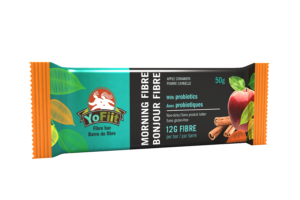
I was recently sent some of YoFitt's nutritional bars to try. I loved the packaging. Bright coloured and very informative about what ingredients are in the bar. I also love that they are made locally here in Toronto. I love supporting Canadian companies and even more so when they are made in my city.
What's so great about YoFiit?
The bars contain pre-biotics to help support a healthy gut flora because a healthy gut is the foundation of a healthy life. 11-12 g of fibre per bar. It also has probiotics that serve 2 functions a) sustain a strong gut by aiding at the digestion of carb and protein b) enhance one’s workout experience because in clinical trials, combining this probiotics strain with protein enables the easier protein absorption and as such reduces soreness post workout and allows for quicker muscle. The bars have no more than 5g of sugar. They are nut-free, vegan and gluten-free. They also have high in trace minerals such as magnesium, manganese.
What's really unique is that there are 3 bars scientifically formulated based on your needs throughout the day:
1.Morning fibre bar provides 49% of your fibre needs for the day. You are halfway through with just one bar!

2. Midday Energy bar is the pick-me-up kind of bar when you feel like you are crashing in the office or on the road around 3 pm. Full with antioxidant such as goji, cacao, quinoa, this is the perfect bar for on the go adventures.
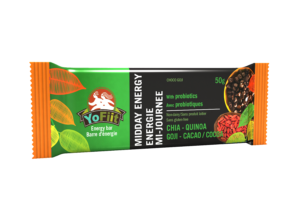
3. All day protein bar is the ultimate protein companion bar. Optimal ratio of protein, fibre and sugar. 15g of protein / 12g of fibre / 5 g of sugar per 55g bar.
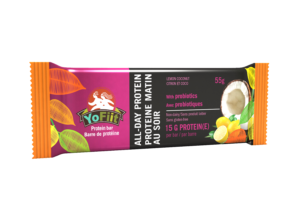
If you are looking for a natural bar these are a great source. I especially like that the 3 bars are specific to the different needs at different times of the day. They taste very clean and healthy. Give them a try and let me know if you like them.
Thanks Yofiit for the bars!
You can purchase bars HERE.










